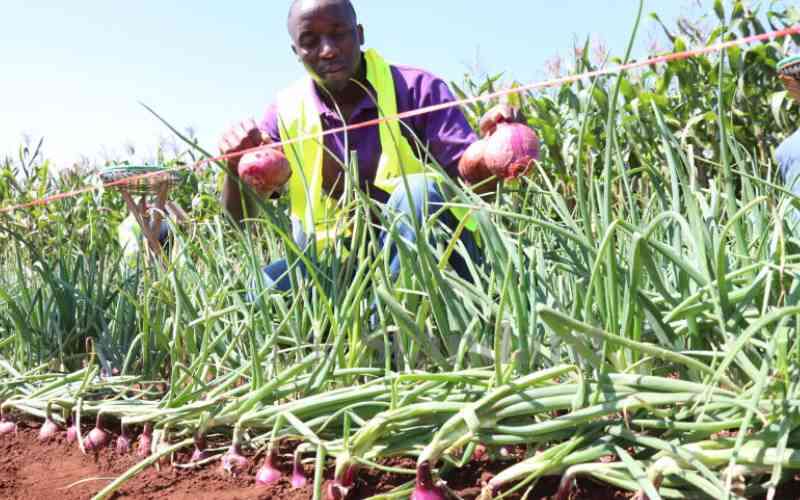×
The Standard e-Paper
Stay Informed, Even Offline

After seventeen years of farming and selling - or trying to sell - onions, Joshua Mwangi has given up on the venture and swiftly moved on to other crops.
Many of his neighbours haven't, mainly because they have nothing else to move on to.